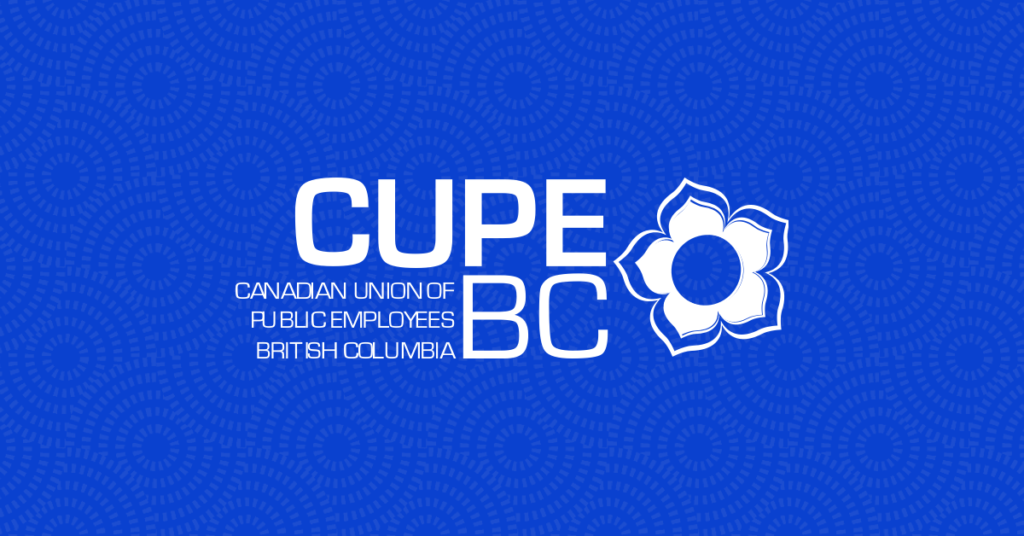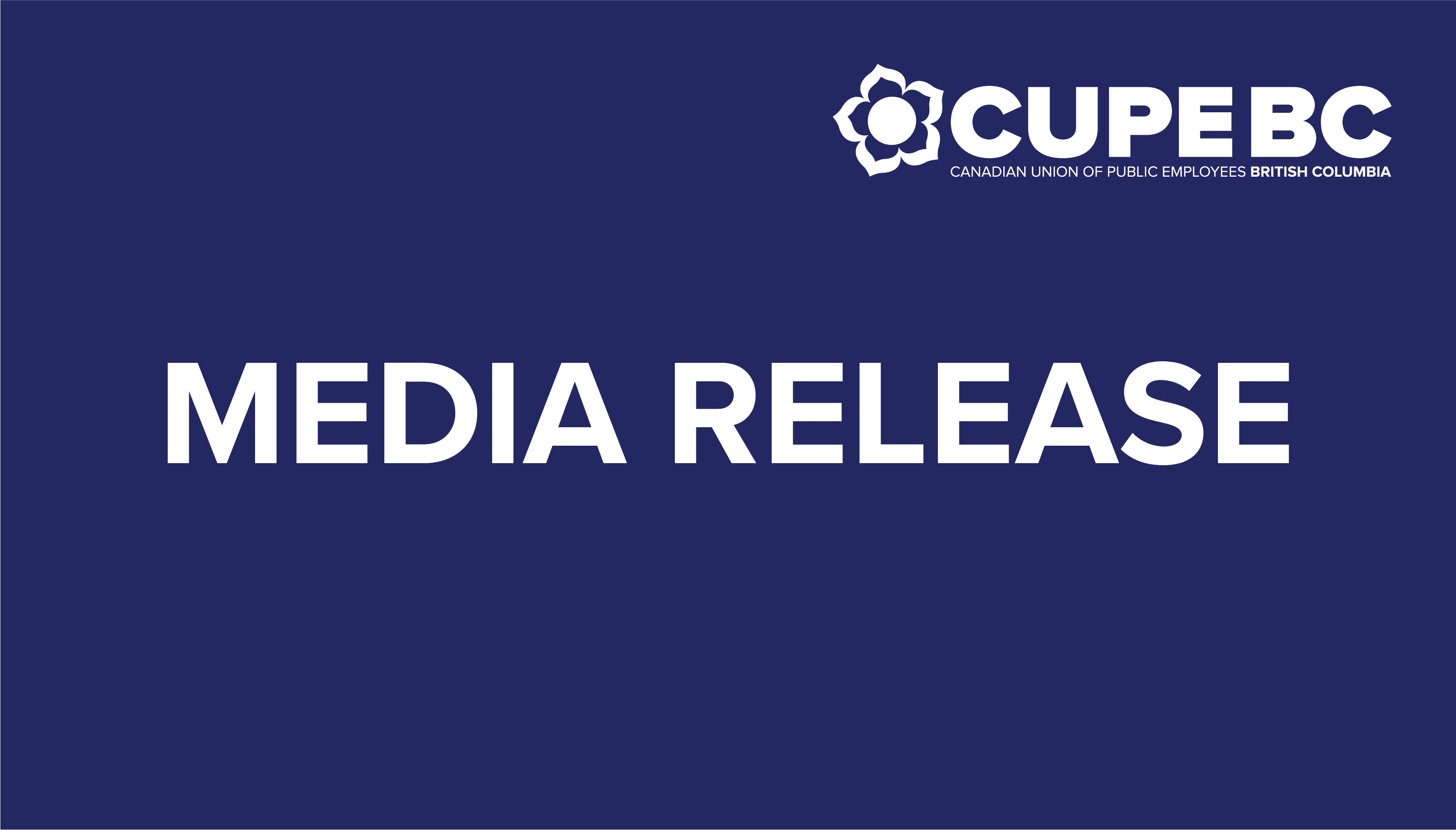Conference ends with key recommendations on several issues
RICHMOND—CUPE BC’s first human rights conference wrapped up on November 20 with delegates united and excited about the union’s role in advancing equality in B.C. workplaces and society at large.
The conference, which drew 112 registered delegates, brought all four of CUPE BC’s equity-seeking groups—aboriginal workers, workers of colour, workers with disabilities and LGBT workers—under one umbrella.
“If we’re not moving forward, then we’re moving backwards,” secretary-treasurer Mark Hancock told delegates in his closing remarks, summing up the purposeful tone and ambitious agenda of the high-energy, two-day conference.
“It’s not that we have to go out and change the whole world right now. But if we can change our own small part of the world, that’s how we can make a difference.”
Racial profiling, migrant workers big issues
On a weekend when news media were filled with stories about the full-body airport scanner controversy, CUPE delegates were exploring the human rights implications of this invasive security procedure with a workshop on racial profiling.
The workshop, facilitated by the BC Civil Liberties Association’s Micheal Vonn, discussed the findings of the recently-released BCCLA special report on racial profiling in the context of policing and national security.
In another example, delegates learned that black people in Ontario are twice as likely as other people to be stopped by police and four times as likely to be stopped more than once.
“Why do people who say there’s no racial profiling in Canada not see this as an example of racial profiling?” asked Vonn, urging delegates to ‘follow the money’ and find out what are the corporate drivers fuelling the security culture and undermining our rights.
The workshop on migrant foreign workers had three clear recommendations: to lobby MLAs and MPs for governments to enact policies that protect the rights and welfare of guest workers; to sustain an ongoing education campaign about the plight of migrant foreign workers; and to support international solidarity efforts in which developed countries support migrant workers.
“CUPE should support a human rights challenge to get a ruling that would ensure that migrants are not taken advantage of,” said co-facilitator Maita Santiago, a local advocate for migrant workers.
Raising CUPE’s profile in Aboriginal Canada
A workshop on aboriginal water issues by Arthur Manuel, spokesperson for the Indigenous Network on Economies and Trade, and Don Moran, CUPE’s senior officer for aboriginal issues at the National Equality branch, revealed the need to make better use of CUPE’s success stories in aboriginal communities.
Moran cited the example of Bella Bella, where the community, CUPE and the employer are working together on aboriginal literacy and skill development.
“Aboriginal communities have a bad image of unions,” he said. “By doing these projects, we’re changing the image of our union, and of all unions in Canada.”
Moran said that CUPE needs to form more partnerships of this nature—especially on the anti-privatization front.
“Privatization is coming big-time to aboriginal communities, and the federal government is encouraging it,” he said. “So we need to get our foot in the door, to show them the good work that we’re doing.”
Solutions for disabled and pink triangle workers
Workers with disabilities found a worthy advocate in occupational health nurse Lesley Maisey, whose workshop on the nurse advisor role in accommodation debunked a few myths.
“We had so many great discussions about real-life experiences that you’re having right now,” Maisey said in her closing remarks.
“We need to continue to educate the stakeholders—employers, employees and union members—about what an occupational health nurse or advisor can do, because we’re still perceived as in service of the employer and the bad guy.”
Other recommendations were to bargain occupational health nurses into collective agreements and to encourage organizations to hire people who can assist in medical situations.
CUPE 391 activist Peter DeGroot’s workshop, “Is it okay to be gay at work?”, was held in world café style, with delegates breaking up into groups and discussing LGBT issues in the context of media coverage, B.C. labour laws, CUPE collective agreements and personal histories.
Recommendations included more inclusion of LGBT issues, and more frequent use of pink triangle courses, in the CUPE Education program and continued high visibility support by CUPE BC for LGBT communities.
“There are lots of lesbian, gay, bisexual and transgendered members in CUPE, and CUPE BC is committed to supporting them,” said DeGroot, reminding delegates of the B.C. division’s recent sponsorship of Pride festivals not only in the Lower Mainland but in Prince George, the Island and elsewhere.
The workshop also recommended that an entire edition of Public Employee be dedicated to equality issues.
Time for new approaches
Two of the seven workshops tackled human rights issues that affect all equity-seeking groups. One of CUPE’s equality challenges over the next decade, delegates agreed, will be actively recruiting and mobilizing more young workers to get involved with equality issues.
At one level, this means more social media and more attractive websites. But delegates also called for new approaches to help the union do its work in a more inclusive, less formal way.
“We also need more diversity seats, more equality resources and more equality reps working jointly on campaigns to challenge the government’s right-wing agenda,” said co-facilitator Harminder Singh Magon, CUPE National’s anti-racism coordinator.
Among the recommendations for the Duty to Accommodate workshop was a union review of employer policies on employee rights, and the creation of bargaining language on—and tools for shop stewards and activists about—alcohol and drug addiction in the workplace.
The conference formalities closed with a 20-minute performance by M’Girl, a popular aboriginal women’s vocal ensemble. M’Girl’s potent musical combination of traditional storytelling with stirring vocal harmonies at one point had several delegates up and dancing in a circle.
Response to the conference—which was planned and organized by CUPE BC executive assistant Sharon Prescott—was overwhelmingly positive.
Hancock, in his closing remarks, acknowledged the continuing challenges that all CUPE members face in the human rights arena.
“The world’s gone kind of crazy the last couple of years, what with Sarah Palin and the Tea party—and there’s talk of having a Fox North up here. So there’s a pushback from politicians and also some of the media on the right,” he said.
“So what kind of world do we want our kids and grandkids to live in? The bottom line for me is a world that’s free of racism and discrimination, and what we’ve seen in the last few months scares me because we’ve taken a few steps backward. So we have to challenge racism and discrimination. And we have to celebrate our differences.”
View photos.



